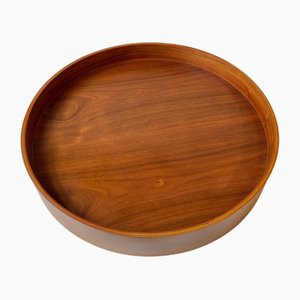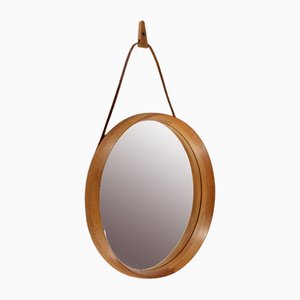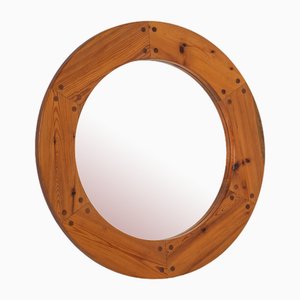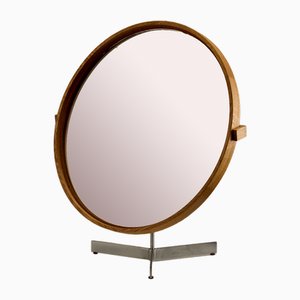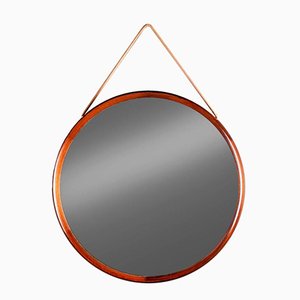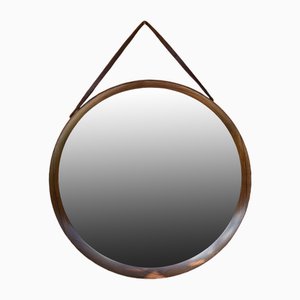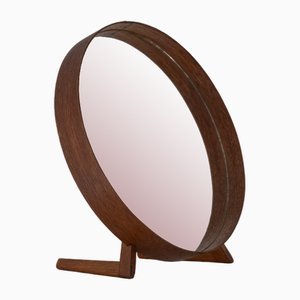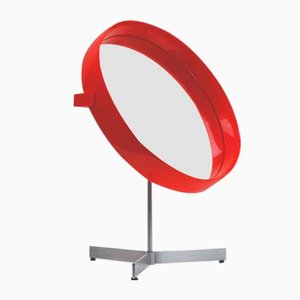
Swedish designers and brothers Uno & Östen Kristiansson, known for their lighting and mirror designs, were particularly active from the 1950s to the 1970s in Sweden. They were prolific designers with a clear design aesthetic that is easily recognizable as Scandinavian modern. Although there is a dearth of biographical information available on the pair, their designs are nonetheless appreciated by vintage lovers, and are highly sought-after on the vintage market today.
Uno was born in 1925, and Östen two years later in 1927. Little is known about their formative years, but it can be surmised that they spent their early years in southern Sweden, learning the furniture trade from their father who ran his own furniture business, Vittsjö Furniture (established in 1919), named after the Swedish village in which it was located.
In 1950, Uno Kristiansson founded his own manufacturing company, Luxus, which was also situated in Vittsjö. He produced a range of products, including home and interior lamps, furniture and mirrors, that were designed by the two brothers. In the 1950s, the collections were launched nationally in Sweden, and internationally across Europe. In 1968, Luxus presented a collection of lamps with brightly colored textile shades that perfectly encapsulated the mood of the 1960s. They are said to have been designed by renowned Finnish textile artist Marjatta Metsovaara (1927-2014).
It is speculated that in 1966, Östen took over his father’s business and renamed it Östen Kristiansson AB, which now operates under its original name, Vittsjö Möbelfabrik AB. It is unclear what was produced during this time, or if the company was separate from Luxus.
Like many of their Scandinavian contemporaries, the Kristianssons favored teak in many of their designs, but did not shy from using glass, leather, plastic and acrylic. Standouts designs from the brothers include, the acrylic Plafo Ceiling Lamp (1950s), the opaline glass UFO Lamp (1950s)—which was made from acrylic in the 1960s, the Model 204 Hunting Chair (1954), and a series of minimalist mirrors from the 1960s that reflect the style of Jacques Adnet’s Circulaire Mirror (1950), which was originally produced by Hermès.
From the 1970s, Luxus focused on the creation of lighting for public spaces, once again featuring models made from acrylic, with contrasting minimal wood details. Many online sources list the Arkitektura Lamp, Candus Lamp, Skulptura Lamp, Discus Lamp, Pinus Lamp, and Rustikus Lamp (all 1970s) as part of the Luxus repertoire, yet there are few concrete examples available of this collection, and our editors are working hard to confirm the authenticity of these models.
Östen died in 2003, and is survived by his older brother. Today, their designs fetch high prices by vintage enthusiasts and design lovers looking to add some minimalist Scandinavian flair to their home.

